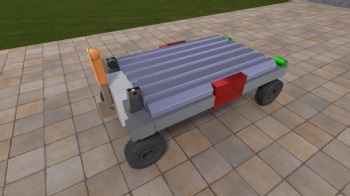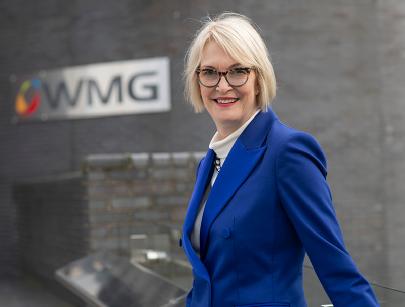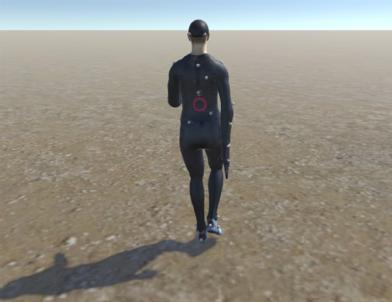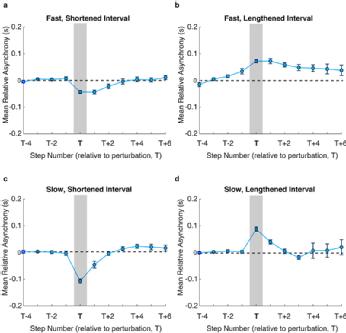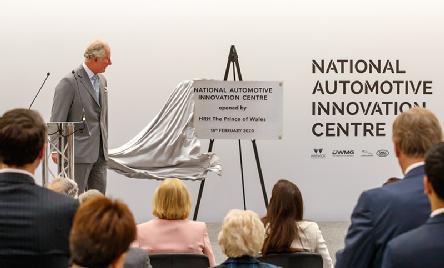WMG News
The potential of UK engineering companies to manufacture ventilators - expert comment from Professor Robert Harrison
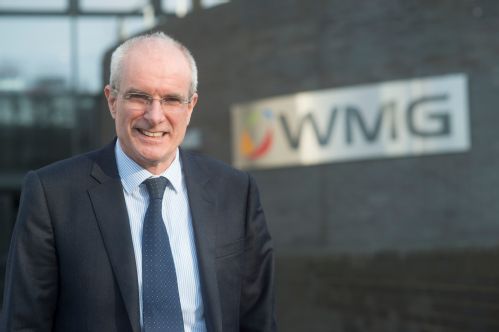 Robert Harrison, Professor of Automation Systems, at WMG, University of Warwick, comments on the potential of UK engineering companies to manufacture ventilators.
Robert Harrison, Professor of Automation Systems, at WMG, University of Warwick, comments on the potential of UK engineering companies to manufacture ventilators.
He said: “JCB, Rolls Royce or others could potentially manufacture ventilators. They have relevant skills and capabilities, but given that all the design and manufacturing related information could be supplied to them, getting the parts and the tooling to manufacture such a thing will be a significant task, perhaps taking many months.
“They would have to tool up production lines and train workers to assemble and test the product. Sourcing the parts, e.g., electronics, valves and air-turbines, quickly could be difficult.
“These are sophisticated devices. It is crucial that they work correctly in order to keep the patient alive, as these are life-critical pieces of equipment.”
WMG Associate Professor receives prestigious Institute of Marine Engineering Science and Technology award
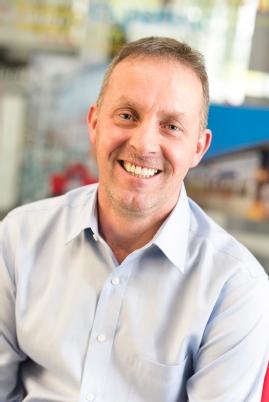 Congratulations to WMG Associate Professor Dr Ian Tuersley who has been awarded a IMarEST Outstanding Contribution Award 2019 for Marine Education.
Congratulations to WMG Associate Professor Dr Ian Tuersley who has been awarded a IMarEST Outstanding Contribution Award 2019 for Marine Education.
“Dr Tuersley is a Chartered Engineer, a Fellow of both the IMarEST and the IMechE, and has been part of the teaching team at the University of Warwick for over 25 years.
His nomination for the IMarEST Outstanding Contribution Award was based on his engagement with the ‘European International Submarine Races’ (eISR) and the US equivalent (ISR) competitions over the last seven years. His involvement has reaped a substantial amount of educational benefit that he has developed and disseminated throughout the higher education sector.
Since 2013, Ian has acted as Project Director on the Warwick Submarine team supporting final year engineering students in designing and building a human-powered submarine to the exacting specification of the US and European competitions.
Ian said: “This award is wonderful recognition of a great deal of very successful work – but that has involved contributions from a number of colleagues and of course a lot of my project students. Their enthusiasm and engagement in both the Warwick Submarine project itself and the dissemination of its benefits and achievements has been one of the most rewarding experiences of my career as a teacher. I am grateful for having the opportunity to have been involved in this activity with all of these people and would like to extend the recognition that this award offers to all of them.”
Ian’s teaching subjects range from applied statistics and experimental data analysis to various aspects of Engineering Business Management (EBM) at both undergraduate and Master’s degree level. His exceptional standard of teaching has been recognised with several awards including a 'Warwick Award for Teaching Excellence' (WATE).
Why we need to stop panic buying – expert comment from Professor Jan Godsell
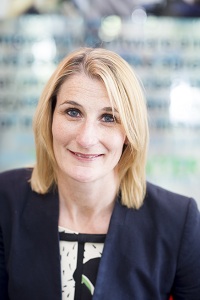 Pictures of empty supermarket shelves, and stories of supermarkets putting limits on items dominates the news as people stockpile due to Coronavirus.
Pictures of empty supermarket shelves, and stories of supermarkets putting limits on items dominates the news as people stockpile due to Coronavirus.
Jan Godsell, Professor of Operations and Supply Chain Strategy at WMG, University of Warwick offers her expert comment on why it needs to stop.
Supporting the supermarkets to ‘smooth the spike’
"The current issues facing UK grocery supply chains, is not one of supply, but one of demand. The UK grocery retailers have sophisticated planning systems that seek to balance demand and supply. Over time, they learn seasonal patterns, the impact of promotions and other events and automatically adjust. The systems are so sophisticated that in the shorter term, they can adjust to changes in weather, for instance making sure we have the right food for our BBQs on hot days.
Need to smooth out the spike…
"The one type of demand that these systems really don’t like is unpredicted spikes in demand. Most grocery products have a relatively stable, and predictable rate of demand that the retailers can plan for. If this suddenly increases, it can take time for the supply chain to react, and move the stock that is further upstream to the shelf.
The problem at the moment is that whilst there is stock upstream in the supply chain, it is hard for the retailers to replenish it to shelf at the rate consumers are taking it. It also means that rather having stock in a warehouse, that could be used by all, the stock gets isolated in our homes, where it can only benefit an individual or their family.
Grocery retailers are taking the really sensible step of ‘rationing’ to try and smooth out these spikes. This is a really responsible reaction, and one to be commended as it will help to ensure that everyone gets the essential items they need.
Need to protect the vulnerable…
"Many in the UK have to budget carefully and only have the financial resources to buy what they need, when they need it. They can’t afford to stock pile.
Rationing should improve availability of products to all, and encourage everyone to buy at the rate that they consume. In that way we should all have access to the essential items we need.
Further measures by grocery retailers to prioritise delivery slots, and have dedicated in-store shopping slots for the elderly and vulnerable are be commended too.
What else could be done?
"Whilst UK retailers have started rationing, some are still offering promotions. Buy-one-get one-free, 3 for 2, or buy 2 for a fixed amount, all encourage consumers to buy more than they actually need.
Perhaps now is the time to stop such promotions, move to fixed pricing, to discourage purchasing more than required.
The Italian retailers are a number of weeks ahead of the UK retailers in understanding the impact of the virus on demand. It would be expected that once initial panic buying is over, when cupboards are full, replenishment will return to a more normal rate. There may be some uplift as we stay at home, and consume more in our domestic environment. Insight from the Italians, shared with UK retailers and their suppliers could help us to prepare.
With more consumers shopping online, and rationing in place, donations to food banks have fallen at a time when they are needed more than ever. Perhaps it is time to consider, how we can move food banks on-line too. Donate food, as part of our on-line shop or as a direct donation. With digital food bank vouchers, enabling the most vulnerable to get direct supply from a retailer.
These are unprecedented times. The basic principle of good supply chain management is to balance demand and supply. The UK retailers are working really hard to ensure that we have all the essential items that we need. We can help too, by buying responsibly and supporting the more vulnerable."
Autonomous guided vehicles to transform horticultural labour shortage
An Autonomous Guided Vehicle is being designed by researchers at WMG, University of Warwick in a bid to help the horticultural sector tackle a labour shortage.
The Agriculture and Horticulture Development Board (AHDB) launched the SmartHort project in 2018 in a bid to help the sector’s economy by reducing labour requirements in horticulture through new technology and automation.
Leading automation experts from the WMG, University of Warwick are creating the model alongside three horticultural businesses; Crystal Heart Salad (lettuce propagators, Yorkshire), Valefresco (salads, Worcestershire), and WD Smith & Son (bedding plants, Essex).
The model will have the potential to work in both glasshouse and outdoor environments to automate the movement of trays and boxes around the production area, speeding up production.
Agri2 from ASG_WMG2020 on Vimeo.
Professor Robert Harrison from WMG, University of Warwick comments:
“We’ve been able to apply the cutting-edge technology developed in the automotive industry to the challenging environment of horticultural production.
“We reviewed existing AGVs to ensure there wasn’t an available product that could meet the growers’ needs, and have run a full analysis on the potential prototype to ensure the investment could be repaid through offsetting future labour costs.”
Our research teams is working on a solution to specifically address needs within the horticulture sector. Having captured the requirements, we have produced a configurable solution, which we are now progressing via prototype designs. Key aspects of the solution include the ability to work both indoors and outdoors and for it to be usable in conjunction with application-specific attachments of different types.
Grace Emeny, Knowledge Exchange Manager at AHDB, said: “With the lack of available labour an increasing pressure for many businesses, there is a growing need to automate more routine tasks to enable staff to be reallocated to more skilled jobs.
“There are two main barriers that prevent the uptake of automation. Many off-the shelf solutions don’t work for diverse horticulture production systems and often the return on investment doesn’t stack up in the current trading climate. WMG were tasked with addressing both of these challenges, which we believe they are well on their way to achieving.”
The overall goal is for the prototype to be developed commercially and is likely to cost around £30,000 to £50,000 depending on its configuration. So it’s available to all kinds of businesses in the sector.
James Bean, Crystal Heart Salad Co. comments:
“WMG have made several visits to our nursery. They have carried out a study of our logistics and have identified a design of autonomous vehicle which can improve efficiency and remove low-skilled manual tasks.
“We are excited to see this move to the next stage, to conduct real-life tests of the technology. If it fulfils expectations, it will make a fundamental change to our business.”
Grace added: “We know horticulture is at the forefront of a digital revolution in farming and our SmartHort programme is designed to help connect growers with automation and robotics experts to help accelerate innovation. This project demonstrates the potential opportunities available from matching skills outside horticulture to meet the needs of the industry.”
The project is being funded by AHDB and match-funded by Innovate-UK-backed High Value Manufacturing Catapult.
To find out more about the SmartHort Automation Challenge, visit www.ahdb.org.uk/smarthort
ENDS
WMG pledges support to STEM for Britain
WMG was delighted to support STEM for Britain 2020 earlier this week for the fourth consecutive year.
STEM for Britain is a poster competition with five categories including Biological and Biomedical Sciences, Chemistry, Engineering, Mathematical Sciences and Physics. It took place at the Houses of Parliament bringing together early career researchers and MPs from across the UK.
This prestigious annual event is an important date in the parliamentary calendar because it gives MPs an opportunity to speak directly to some of the UK’s brightest young researchers.
Professor David Mullins, WMG Head of Department (interim) said: “This is the only event in the year that brings together really creative, really intelligent and passionate, young PhD and early career research students.
“We are delighted and honoured that WMG was able to sponsor the engineering element along with the Royal Academy of Engineering.”
He added: “For MPs it’s a really inspiring event. They get the chance to see the work coming out and how issues including climate change and healthy aging are being addressed. These young people are our future.”
Stephen Metcalfe MP and Chairman - Parliamentary and Scientific Committee, said: “These early career engineers, mathematicians and scientists are the architects of our future and STEM for BRITAIN is politicians’ best opportunity to meet them and understand their work.”
Greg Clark MP, Chair of Science and Technology Select Committee, explained: “It is a growing field that will have a huge impact on millions of people. STEM research will change the lives of our generation and of generations to come.”
Four University of Warwick students Jake Brooks (School of Engineering), Fabienne Bachtiger (Computational Chemistry), Robert Richardson (School of Chemistry) and Jonathan Harrison (Mathematics Institute) presented posters at the event.
Margot James announced as New Executive Chair for WMG at the University of Warwick
The University of Warwick is delighted to announce the appointment of former Minister Margot James as the new Executive Chair of WMG. She takes up the role in April.
The University of Warwick’s Vice-Chancellor, Professor Stuart Croft said
“This is a fantastic appointment. Margot brings a wealth of leadership experience from Government and industry to WMG.She is ideally placed to lead WMG as it celebrates its 40th Anniversary year as it continues to grow and diversify, building on the outstanding foundations established under its former Chairman the late Professor Lord Kumar Bhattacharyya”.
She served as Minister of State for the Department for Digital, Culture, Media and Sport, with responsibility for Digital, Telecoms and the Creative Industries, piloting the Data Protection Bill through Parliament, incorporating GDPR into UK law. Previously she served as Parliamentary Under-Secretary of State at the Department for Business, Energy and Industrial Strategy, with responsibility for small businesses, consumers and corporate governance, including labor markets.
In 1985, Margot founded Shire Health Group which she grew to over 100 staff, having created a new market for industry sponsored public health campaigns.In 2004 she successfully transitioned Shire Health Group to the multinational WPP.Subsequently, she served on the Europe, Middle East and Africa Board of Ogilvy Mather, leading their European healthcare programmes.
Margot commented
“I am delighted to have been appointed Executive Chair of WMG, University of Warwick.It will be a real privilege to work with the exceptional academics and researchers from industry who are based at, or partnered with, WMG to grow this unique institution.I would like to pay tribute to the vision and dedication of WMG’s founder and chairman; the late Professor Lord Kumar Bhattacharyya who led WMG in a constant quest for the latest innovations and new technologies.
“As well as world leading research with impact, WMG are educating the next generation of engineers and technologists.Throughout my career in business and government I have championed the need to expand opportunities for diverse groups of young people and I am inspired by the range of different opportunities on offer at WMG.”
“I look forward to bringing to WMG my experience as minister for digital and the creative industries, and prior to that business minister, as well as my time spent building up my business which provided marketing insights and services to the healthcare industry.”
On the appointment, the Mayor of the West Midlands, Andy Street, said:
“WMG plays a highly important role within the region and with my knowledge of Margot, and experience of working with her, I am sure that she will provide strong leadership enabling WMG to continue its beneficial impact in the region”.
The Rt Hon Greg Clark MP, who worked closely with late Professor Lord Bhattacharyya for many years, stated
“I am pleased to see Margot James with whom I worked closely in government appointed to this post. Margot’s thorough understanding of the national policy debate and her experience of leading and working with organisations across a range of sectors, and her personal drive and enthusiasm will be ideal for WMG.”
Physiotherapy could be done at home using Virtual Reality
- Current Physiotherapy techniques require patients to complete exercises at home, which doesn’t include much guidance
- Virtual reality (VR) combined with 3D Motion capture could allow movements to be translated onto an avatar the patient can follow, thanks to researchers at WMG, University of Warwick
- Consumer VR technologies can be used for both providing guidance to physiotherapy exercises, but also to make the exercises more interesting and encourage people to complete the course they need Virtual reality could help physiotherapy patients complete their exercises at home successfully thanks to researchers at WMG, University of Warwick, who managed to combine VR technology with 3D motion capture.
Currently prescribed physiotherapy often requires patients to complete regular exercises at home. Outside of the clinic, patients rarely receive any guidance other than a leaflet of sketches or static photographs to instruct them how to complete their exercises. This leads to poor adherence, with patients becoming anxious about not getting the exercise right, or simply getting bored by the repetitiveness of the movements.
The advent of consumer virtual reality technology combined with 3D motion capture allows real movements to be accurately translated onto an avatar that can be viewed in a virtual environment. Researchers at the Institute of Digital Healthcare, WMG, University of Warwick are investigating whether this technology can be used to provide guidance to physiotherapy patients, by providing a virtual physiotherapist in the home to demonstrate the prescribed exercises.
Their paper, ‘Timing and correction of stepping movements with a virtual reality avatar’ published today the 28th of February, in the Journal PLOS ONE, has focused on whether people are able to accurately follow the movements of a virtual avatar.
Researchers had to investigate whether people were able to accurately coordinate and follow the movements of an avatar in a virtual environment. They asked participants to step in time with an avatar viewed through a VR headset.
Unknown to the participants, the researchers subtly slowed down or sped up one of the avatar’s steps, such that the participants would have to correct their own stepping movement to stay in time. The effect this correction had on their step timing and synchronisation with the avatar was measured.
Lead author, Omar Khan from WMG, University of Warwick commented:
“If participants were observed to correct their own stepping to stay in time with the avatar, we knew they were able to accurately follow the movements they were observing.
“We found that participants struggled to keep in time if only visual information was present. However, when we added realistic footstep sounds in addition to the visual information, the more realistic multisensory information allowed participants to accurately follow the avatar.”
Dr Mark Elliott, Principal investigator on the project at WMG, University of Warwick added:
“There is huge potential for consumer VR technologies to be used for both providing guidance to physiotherapy exercises, but also to make the exercises more interesting. This study has focused on the crucial question of how well people can follow a virtual guide.”
Prof. Theo Arvanitis, co-author and Director of the Institute of Digital Healthcare, said:
“Our work and digitally-enabled technological solution can underpin transformative health innovations to impact the field of physiotherapy, and have a direct benefit to patients’ rehabilitation.
“We now plan to investigate other types of movements working closely in partnership with physiotherapists, to establish the areas of physiotherapy that will benefit most from this technology.”
HRH The Prince of Wales officially opens the National Automotive Innovation Centre
- One of Europe’s largest automotive research and development centres is tackling society’s greatest mobility challenges to shape the future of the automotive industry from the heart of the UK
- £150m national centre dedicated to advanced automotive research, design and development
- Jaguar Land Rover, Tata Motors and WMG, University of Warwick showcased sustainable future mobility projects, including their latest electrified and autonomous vehicles
- Jaguar Land Rover demonstrated its latest advanced autonomous research concept vehicle as the next stage of its Destination Zero mission: an ambition to make societies safer and healthier, and the environment cleaner.
HRH The Prince of Wales today officially opened one of Europe’s largest automotive research and development facilities, the National Automotive Innovation Centre (NAIC), at the University of Warwick, in Coventry. Advanced researchers, engineers and designers based at the Centre are tackling society’s largest mobility challenges and collectively shaping the future of the global automotive industry from the heart of the United Kingdom.
Bringing together the brightest minds from industry and academia, the NAIC is a beacon for future mobility and sustainability research and development. It will create future vehicles and personal mobility solutions as well as deliver the skills required to keep the UK globally competitive. The NAIC is at the centre of the Midlands ecosystem, which is a magnet for economic growth and delivering a Destination Zero future.
During today’s visit, Jaguar Land Rover, Tata Motors and WMG showcased sustainable future mobility projects, including their most recent electrified and autonomous vehicles.
Jaguar Land Rover demonstrated its latest advanced research vehicle as the next stage of its Destination Zero mission: an ambition to make societies safer and healthier, and the environment cleaner. Delivered through relentless innovation, the company’s focus is on achieving a future of zero emissions, zero accidents and zero congestion – across its facilities, and through its products and services.
Speaking at today’s opening event, Prof Sir Ralf Speth, CEO Jaguar Land Rover said: “At Jaguar and Land Rover, we believe in creating a better tomorrow for mobility. A future of zero emissions, zero congestion and zero accidents. We call it “Destination Zero and the National Automotive Innovation Centre will make sure we get there.”
“Here academics, manufacturers and suppliers will develop a smart, safe transport infrastructure that integrates autonomous vehicles and public transport; design zero emissions vehicles powered by smart-chargers and renewable energy and discover material and digital manufacturing innovations that will eliminate waste.”
“We are honoured that HRH The Prince of Wales has joined us today to open the National Automotive Innovation Centre.”
A collaborative hub
The 33,000m² centre is designed as an innovative, collaborative workspace for hundreds of academics, designers, researchers and engineers. It includes cutting-edge workshops, laboratories, virtual engineering suites and advanced powertrain facilities.
The concept for the NAIC was brought to life by the late Professor Lord Bhattacharyya, founder of WMG, and the building it is located in is named in his honour.
The University of Warwick’s Vice-Chancellor, Professor Stuart Croft said “I warmly welcome HRH The Prince of Wales to the University of Warwick campus to officially open the National Automotive Innovation Centre. Its location underscores Coventry, Warwickshire and the West Midlands’ leading roles in UK and international automotive innovation and research.”
“We have benefited from the dedication of many individuals and organisations from across industry and academia, as well as local and national government, have come together to help bring the vision of the late Professor Lord Bhattacharyya to fruition to create a centre dedicated to the development and research of the future of mobility.”
The partners working together in NAIC are engineering the future and helping supply the next generation of engineers, designers and researchers. At NAIC, students and apprentices work alongside experts and leaders in their fields. Through a range of education programmes, apprenticeships and lifelong learning, all three partners are developing curricula which support the emerging technologies and mobility solutions.
Professor David Mullins, Interim Head of WMG, commented: “The late Professor Lord Bhattacharyya’s vision was for future generations of designers, researchers and engineers to be inspired to innovate through collaborative research projects with manufacturers, suppliers and academia at the National Automotive Innovation Centre.”
“We are committed to delivering the skills required to keep the UK globally competitive and are developing curriculums, such as our digital degree apprentice programme, which enables emerging technology and mobility solutions.”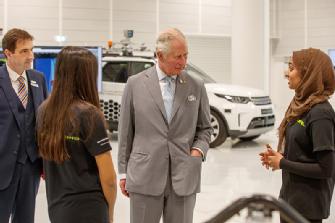
Sustainable future mobility
Jaguar Land Rover, Tata Motors and WMG are developing next generation future electrified and autonomous vehicles at the NAIC.
Today, they exhibited some of their latest projects including: Warwick’s Formula Student entry and the Warwick Moto concept which is led by WMG; Tata Motor’s latest affordable Nexon EV and autonomous Tata Hexa alongside Jaguar Land Rover’s latest prototype self-driving Jaguar I-PACE and ADAS Land Rover Discovery.
Guenter Butschek, CEO and MD of Tata Motors Ltd., said, “The National Automotive Innovation Centre brings together our UK-based engineering and design experts to one setting, providing greater synergy on ground-breaking design and technologies with a focus in Connected, Electric, Shared and Safe, that will help shape future mobility solutions in India.
The Centre has been carefully designed to support the future of automotive advancements. Its virtual engineering suite, powertrain facilities, laboratories and cutting-edge design workshop provide an inspiring, productive and collaborative environment for the future.
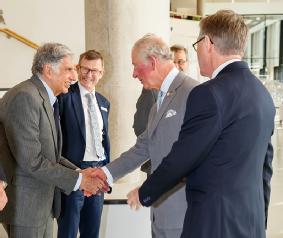 The opening of the National Automotive Innovation Centre, at the start of our 75th year, confirms Tata Motors' commitment to developing responsible and sustainable solutions to address the global challenges of the coming decades. The team is excited by HRH The Prince of Wales’ presence at the event and his great interest and understanding of the opportunities and challenges of our industry.”
The opening of the National Automotive Innovation Centre, at the start of our 75th year, confirms Tata Motors' commitment to developing responsible and sustainable solutions to address the global challenges of the coming decades. The team is excited by HRH The Prince of Wales’ presence at the event and his great interest and understanding of the opportunities and challenges of our industry.”
Sustainable wellbeing
The building and all its facilities were designed from first principles to embrace sustainability and wellbeing.
NAIC’s construction has been recognised with the highest BREEAM Excellent rating and the building includes a rooftop photovoltaic array and regenerative electrical heating. Underneath one of the world’s largest glulam timber roofs, offices are flooded with natural light, and are arranged around a daylight filled atrium.
The £150m Centre is a partnership project by Jaguar Land Rover, WMG, Tata Motors and the University of Warwick with £15m funding from the UK Government’s Research Partnership Investment Fund, through Research England.
David Sweeney, from Research England said: “The National Automotive Innovation Centre will create breakthrough technologies with a whole system approach that crosses multiple disciplines. This model of interdisciplinary working exemplifies how our innovative higher education sector works with industry to foster collaborative and highly effective relationships, in regional centres of research excellence such as the West Midlands.”
“Research England is delighted to have the opportunity to support the NAIC via the Research Partnership Investment Fund.”
Electric superbike designed by students to race this summer
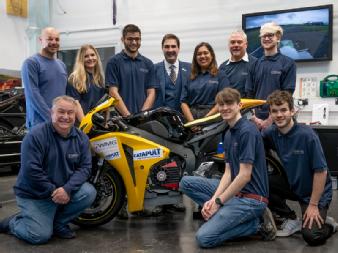 In a race to be clean and green the motor industry is changing, which has inspired 40 Warwick students to make an electric superbike to race this summer, 2020.
In a race to be clean and green the motor industry is changing, which has inspired 40 Warwick students to make an electric superbike to race this summer, 2020.
As the government has announced proposals to ban the sale of petrol, diesel and hybrid cars by 2035 the race to electrify the motor industry is on, and motorbikes aren’t to be overlooked.
The 40 students from a range of departments including: WMG, School of Engineering, Computer Science, Physics and Maths will work together to make the electric superbike possible with thanks to support from Rajputana Custom Motorcycles and Mupo Race Suspension.
School of Engineering student Aman Surana is managing the Warwick Moto team, he comments:
“The reason why I’m doing engineering is because of my interest in motorsports, be it four wheels or two. More than theory and the principles behind engineering concepts, it’s about the practical experience and finding real solutions rather than just what works on paper.
“My work experience at one of Asia’s biggest custom motorcycle shops Rajputana Custom Motorcycles helped reinforce my passion for motorcycles and is the reason Warwick Moto exists.
“It’s great to have the support from our sponsors Rajputana Custom Motorcycles and Mupo Race Suspension, and further support from WMG centre High Value Manufacturing Catapult, leading 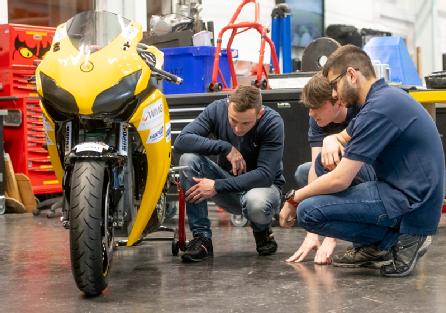 academics in the industry are helping us to make this possible.”
academics in the industry are helping us to make this possible.”
The students will work in sub-teams focussing on:
1. Battery and Drivetrain
2. Chassis
3. Design and Aerodynamics
4. Finance
5. Marketing
6. On-Board Auxiliary systems
Superbike rider Tom Weeden has agreed to ride the electric superbike for them, and will be involved in all the testing and trials ready for a self-organised technological demonstration event in July 2020, he comments:
“I’m over the moon to be signing to ride the Warwick Moto electric bike in 2020 and hopefully beyond. The electric class is something I’ve been interested in and keen to be involved in for some time now.
“I’m looking forward to working with the students to develop a package that we can build for the future. Hopefully one day we can go to the TT and take it to the big budget teams.
“The passion these guys have is truly inspiring and I’m looking forward to learning more about how the technology works and adapting my riding to suit the different characteristics of the electric motor.
“I’ve ridden my brothers electric trials bike for the past few years and I know just how much torque and instant linear power these bikes can produce. The bike is based on the Honda Fireblade which has a brilliant handling chassis so should be an awesome platform to build from. Fingers crossed we can bring the budget that this team deserve to put together and develop the technology of the future!”
The students will have the motor and invertor delivered and tested in the next month, and will test the battery at the same time. They hope to have the prototype module testing in March.
The bike will then race at events over summer, but the long-term objective is to compete with a podium qualifying time at the Isle of Man TT 2022.
The team are looking for more supporters to make their first electric bike, you can sponsor them or donate to them here: https://www.justgiving.com/crowdfunding/warwickmoto
Follow their journey:
Instagram: https://www.instagram.com/warwick.moto/
Facebook: https://www.facebook.com/warwickmotoracing/
LinkedIn: https://www.linkedin.com/company/warwick-moto/
ENDS
DATE
NOTES TO EDITORS
High-res images available credit to WMG, University of Warwick at:
https://warwick.ac.uk/services/communications/medialibrary/images/february2020/tom_20.jpg
Caption: The full team of students and academics with the driver, Tom Weeden
https://warwick.ac.uk/services/communications/medialibrary/images/february2020/tom_04.jpg
Caption: The students and some academics working on the Warwick Moto team with the bike
https://warwick.ac.uk/services/communications/medialibrary/images/february2020/tom_08.jpg
Caption: Tom Weeden, left with students and the bike
https://warwick.ac.uk/services/communications/medialibrary/images/february2020/tom_18.jpg
Caption: Tom Weeden, on the electric superbike
FOR FURTHER INFORMATION PLEASE CONTACT:
Alice Scott
Media Relations Manager – Science
University of Warwick
Tel: +44 (0) 2476 574 255 or +44 (0) 7920531221
E-mail: alice.j.scott@warwick.ac.uk
FOR FURTHER INFORMATION PLEASE CONTACT:
Alice Scott
Media Relations Manager – Science
University of Warwick
Tel: +44 (0) 2476 574 255 or +44 (0) 7920531221
E-mail: alice.j.scott@warwick.ac.uk
WMG welcomes winning transportation start-ups
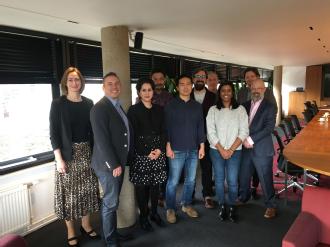 On Thursday, (13th February), four leading transportation start-ups visited WMG to learn more about Cyber Security for Automotive, Cooperative Vehicles and Intelligent Vehicles. The companies recently won a start-up competition at the New Mobility Challenge at CoMotion, Los Angeles.
On Thursday, (13th February), four leading transportation start-ups visited WMG to learn more about Cyber Security for Automotive, Cooperative Vehicles and Intelligent Vehicles. The companies recently won a start-up competition at the New Mobility Challenge at CoMotion, Los Angeles.
The visit was initiated by the UK’s Science and Innovation Network (SIN) in the USA, who identified Warwick and the West Midlands as a priority for their visit to the UK.
Accompanying the delegation was Matthew Melling, Vice-Consul, Trade & Investment Officer from the UK’s Department for Trade and Investment (DIT), in Los Angeles and Brendan Vickers, North America lead for Innovate UK.
Professor Carsten Maple, Deputy Pro-Vice-Chancellor (North America) said; “It was a pleasure to host such innovative start-up companies and share our expertise. The group were particularly interested in the tour of our battery facility at the Energy Innovation Centre and to see the Cooperative Vehicle in action. As we refine our strategy for North America, this was a fantastic opportunity to showcase Warwick at its very best with key stakeholders from the region.”
The companies were:
- Maxwellian – a Montreal/Boston startup who are developing humidity and gas sensors for use on UAVs and other vehicles. Urban Aerial Mobility category winner at CoMotion LA
- Som-EV: Boston based who are deploying swappable batteries for ebikes. Zero Emissions Mobility category winner.
- Zeal: Southern California based company who developed an EV charging software platform. Shared and Personal Mobility category winner.
- Xtelligent: Los Angeles startup developing algorithms for traffic signal management. They were the Smart Infrastructure category and Grand Prize winner.

